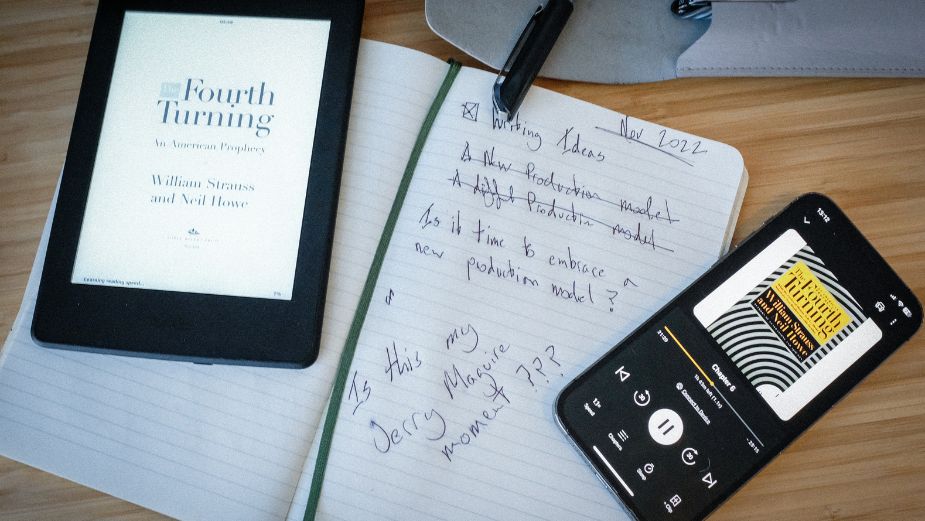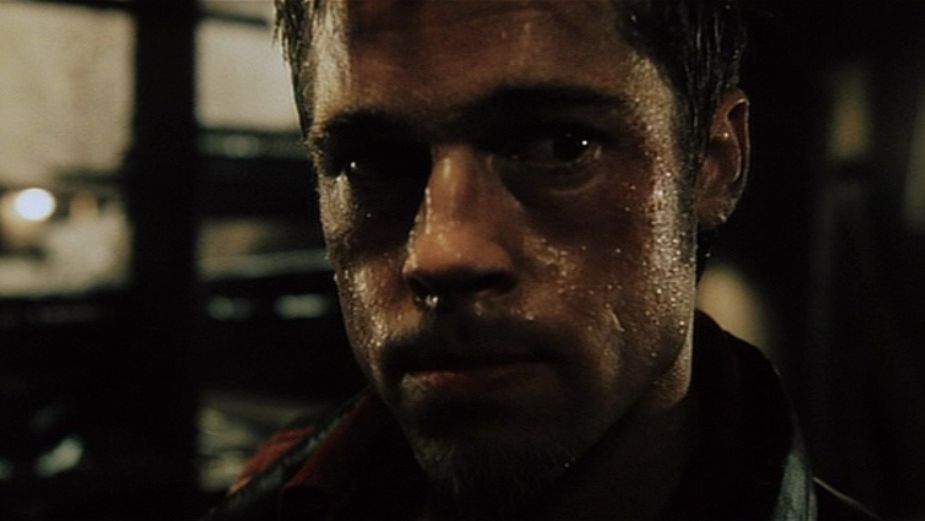
Is It Time to Embrace a New Production Model?

The writers and historians Willian Strauss and Neil Howe, the authors of the brilliant 'The Fourth Turning', theorised that American and world history can be divided into a series of periods they termed turnings. Each turning lasts roughly 20 years and is characterised by economic moods, circumstances, and cultural, social, and political attitudes. The comprehensive book analyses how the world around us is and has been shaped.

I'm fascinated by their idea of “history's seasonal rhythms” that comprises growth, maturation, entropy, and rebirth, much like the yearly four seasons.
Yawn, yawn, yawn. Now, before you fall asleep, skip and refresh your Insta feed, some of you might remember a Brad Pitt as Tyler Durden saying:
"We are the middle children of history…raised on television to believe that one day we'd all be millionaires, and movie gods, and rock stars. But we won't. And we're slowly learning that fact. And we're very, very pissed off." (Fight Club, 1999)
Tyler was angry, and I presume for half the people reading this, Tyler is probably your parent's generation, or… it's you! But stay with me.

Brad Pitt as Tyler Durden, Fight Club (1999)
Struss and Howe coined the phrases Gen X, Millennials, and Gen Z and put the term ‘Baby Boomers’ on the map. They wrote the book in the ‘90s, but as the title suggests, we are now in the fourth turning, which is reshaping life as we know it. And look around. Damn, we can all feel it.
What does this have to do with production? Ok, yep, getting there! Well, the production model we're most familiar with today was born in the late 1960s, pioneered by a couple of brothers from County Durham who have arguably made some of the greatest TV commercials and feature films of all time. And this model hasn't changed much since, even as the world has moved on and, in the meantime, entered its fourth turning.
I see the traditional production model as a production company that represents a list of directors, effectively working as agents in different territories for those directors, finding them work and collectively pitching on a job together. If the pitch is won, the company will go on to produce that work (enter me). Most people reading this will recognise that model and agree it's still the most common way of working. When the model was first set up, it made perfect sense - it was a direct response to the market and media landscape of the time, which looked much more streamlined and flat compared to what we're dealing with today.
A lot has changed. There are lots of freelance directors working in the industry and enjoying the freedom that comes with it; budgets have changed too, and there's been an explosion of content to boot. The old model is best suited to making TV ads, yet advertisers today sometimes don't even make TV ads, instead creating commercial content on different platforms. Plus, much work is now direct-to-brand or produced in-house. TikTok, experiential, the forthcoming Web3 - I can keep going. The point is that each element needs careful consideration and a more flexible approach than the old model currently provides.
As I see it, production today isn't ahead of the game regarding market evolution. It's trailing behind and trying to play catch-up with consequences for creativity. We work in a creative and imaginative industry that should instead embrace change and use the innovative tools at our disposal to create new, exciting work. The focus is still on that flashy TVC, which sits comfortably at the top of the content pyramid. But what is that kind of 'prestige' worth when your audience has migrated to a different platform or is most responsive to an ad on a new platform, barely shaped like an ad at all? Not even Tyler is watching that TVC now. *Side note – "it's definitely going on my reel, thou".
Creative collaboration
How different industry parts cross-pollinate each other is exciting and can be very creatively fruitful. Take 'advertorial' content - editorial work that's brand sponsored. Done right, advertorial content has the power to benefit everyone; it must hit specific editorial standards and also organically incorporate a product or a service. Having worked on these types of productions, I've seen how the two sides end up going head-to-head instead of working with one another because everyone is trying to do their best within their specific category - commercial or editorial - and not thinking about what this new format really needs. This is where a new production model can bridge the gap between 'competing' interests and create a synergistic, mutually beneficial relationship.
So, what could this new production model really look like going forward? Directors don't necessarily need to be repped - I see production companies being less genre specific without a necessary list of directors but a pool they can pull from while generating their own content. Or directors having the freedom to generate their own content, do a bit of writing, and work across genres more freely, whether that's moving from TV and editorial to commercials and back again. I've seen a few companies and people embrace this already, shedding the inherited ways of getting things done and embracing the flexibility of new forms of media. Adopting a little bit of agnosticism would do us all some good. It might also be a time to acknowledge that the next generation of makers, who are typically more fluent in digital spaces and more comfortable with a multi-disciplinary approach, are the answer to the problem. Let's bring them into the fold and see how we can all help each other.
There will always be fear of the unknown because it can spell failure. So many of the techniques and tech we use today - finding them commonplace - were once also unknown. What would've happened if we never gave them a chance? Change is inevitable - it'll happen whether we like it or not; we have a choice to move with the times and use the force of change to push ourselves creatively or stay behind and watch on the side-lines. In our industry, creativity and relevance go hand in hand, and neither will be possible to achieve if we hold on too tightly to what's come before.
Writing this, I feel like I've achieved nothing and opened a can of worms and questions; maybe go back to your Insta feed, or why not make some soap? I need to go and do a budget for a TVC I'm producing.













